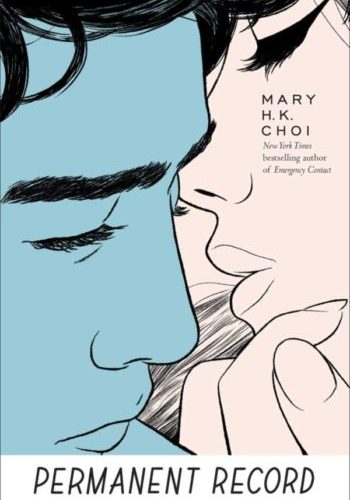Permanent Record
By Mary H.K. Choi
September 3, 2019
ISBN: 9781534445970
Permanent Record is marketed as a romance between Pab (Pablo Neruda Rind) and Lee (Carolina Suarez, pop alias Leanna Smart). When they meet, Pab is struggling as a recent college dropout, and Lee is a pop music juggernaut at the peak of her career. Their romance begins with a late-night meet-cute over a shared love of snack combinations at the Brooklyn bodega/health food store where Pab works the graveyard shift. By the time Pab realizes that Lee is Leanna Smart, they are already mutually attracted to each other.
The romance is narrated by Pab, or Pablo Neruda Rind, a 19-year-old Korean Pakistani American who is working through bouts of paralyzing anxiety – over his incapacitating student debt and credit card debt, his schooling after dropping out from NYU, his career, his racial identity. When Lee enters his life, she brings him a welcome escape into her pop idol world, filled equally with glamorous jet-setting, and her fans’ deafening expectations. Predictably, the difference between Pab’s world and Lee’s begins to strain their relationship, and, as with many YA romances, a majority of the story focuses on how the couple navigates their difficulties.
Throughout the story, Choi builds Pab’s character through depictions of his relationships with his Korean doctor mother, his aspiring playwright and Pakistani father, as well as his younger brother, his roommates, and Lee. Pab’s narration incorporates a significant amount of millennial and Gen Z internet jargon. The reader sees Pab’s anxiety from his own point of view, as he strenuously engages in emotional avoidance from disentangling his emotional responses to debt and dropping out of college, and from facing or accepting help from his family and friends. Choi also takes some care to show how Pab registers and experiences microaggressions, as well as how he relates to Lee in her identity as a white-passing person of color. Another notable aspect of the novel’s characterization is the portrayals of Pab’s parents, which counter some stereotypes of Asian parents as “withholding” or “authoritarian.” For example, although Pab is particularly ashamed to share about his debt or lack of future-planning with his parents, this is more because he doesn’t know how to accept responsibility or help, than because his parents pressured him or held him to expectations that didn’t mesh with his capabilities or character. Although the counter-stereotyping seems slightly contrived from time to time, it is largely refreshing and nuanced, and shows more possibility in how Asian American families can relate to each other and express love for each other than many other portrayals in literature and media do.
Although most of the characters in the story, including Lee, are not nearly as well-developed as Pab, this is understandable as a means by which Choi implicitly portrays the self-centered nature of adolescent anxiety and depression. Overall, though the story is set up as a young romance adorned with the trappings of fame and social media, the most compelling aspects of the story are Pab’s personal mental health journey and his growth in relationship to his friends and family.
Review by Anastasia Chiu. Editing assistance by Molly Higgins.

